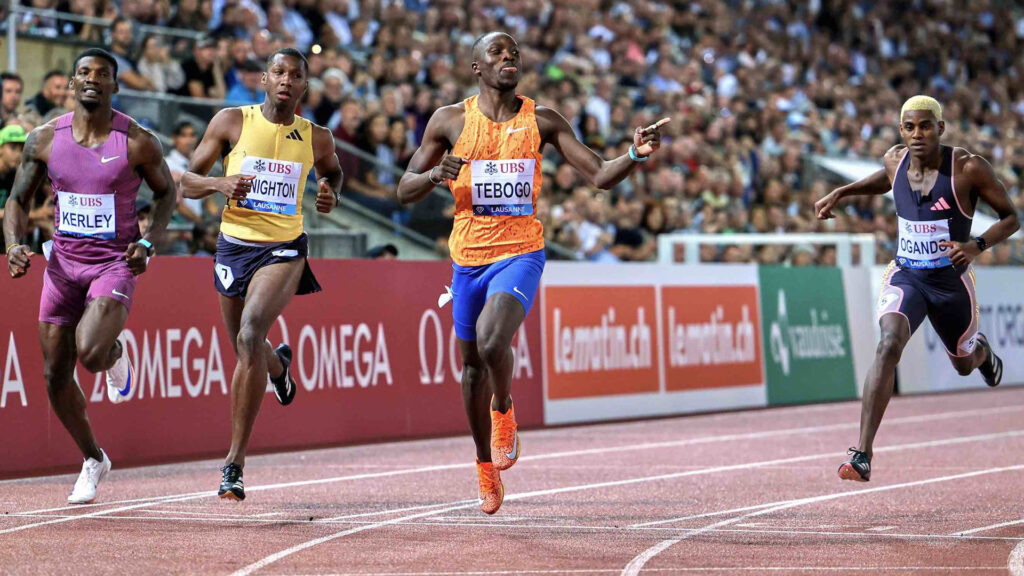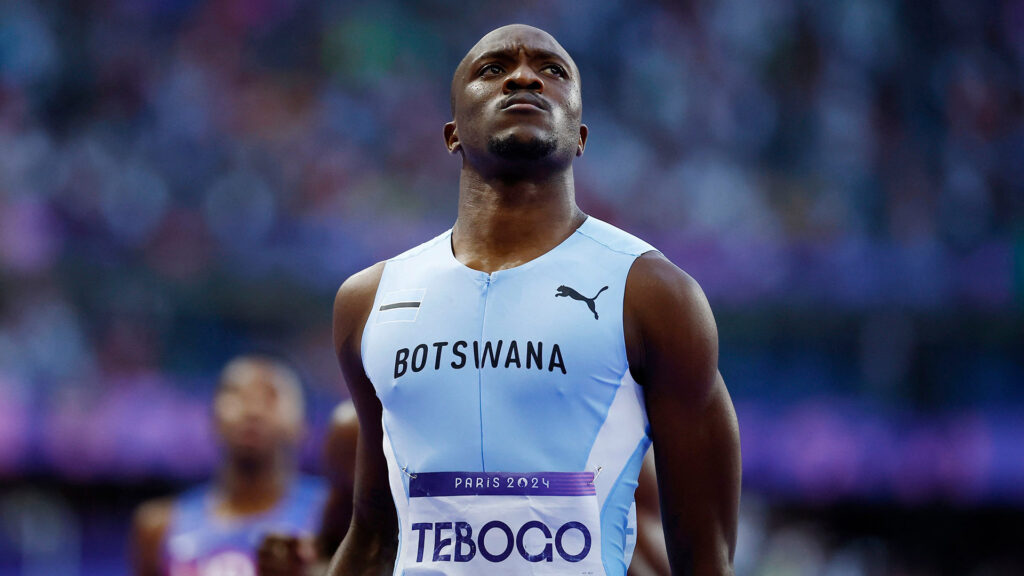Trending: Here are some Business Statistics and Trends to know
Botswana’s sprinting prodigy, Letsile Tebogo, continues to electrify the track, following his Olympic triumph with a dominant victory in the 200m at the Lausanne Wanda Diamond League 2024.
Demonstrating both speed and strategy, Tebogo solidified his position as a rising star in athletics, leaving his competitors in the dust and setting a new standard for post-Olympic performances.
The Race
The Lausanne crowd was treated to a thrilling display as Tebogo lined up alongside some of the world’s fastest men. At the sound of the gun, Tebogo exploded out of the blocks, quickly matching strides with the early leaders.
As they approached the bend, Tebogo shifted gears, smoothly transitioning into his signature powerful stride. Coming off the curve, he was right on the shoulder of the American sprinter, Kenny Bednarek, and by the final 50 meters, Tebogo surged ahead with an incredible burst of speed, crossing the finish line in a blistering 19.63 seconds.
This victory was not just another win for Tebogo; it was a statement. His time, the fastest of the year, marked him as a formidable contender in the 200m, capable of challenging even the most seasoned athletes. The ease with which he dominated the race, coupled with his composure as he crossed the line, was a testament to his training, discipline, and natural talent.
Post-Race Reflections
In his post-race interview, Tebogo expressed his satisfaction with his performance, particularly after coming off a successful but exhausting Olympic campaign. “The body still feels a bit rusty,” Tebogo admitted, “but it’s all about keeping the momentum going and staying focused on the next race.”
Despite taking an eight-day break after the Olympics, Tebogo’s return to the track was nothing short of spectacular, showing that he is far from finished this season.
Reflecting on his journey from the Paris Olympics to Lausanne, Tebogo shared the challenges of maintaining peak performance. He revealed the struggles of sticking to a strict diet and training regimen while resisting the temptations of the off-season.
Yet, his dedication paid off, as he not only performed well in the 200m but also managed to run an African record in the 4x400m relay just a day after his individual victory in Paris.
A Comparative Perspective: Tebogo, Bednarek, and Curley
Tebogo’s triumph in Lausanne wasn’t just about winning a race; it was about asserting his dominance over a field that included Olympic medalists and seasoned professionals. Kenny Bednarek, who has consistently been a top contender in the 200m, found himself trailing behind the young Batswana, despite running one of his best bends.
Meanwhile, Fred Curley, another strong competitor, was left in Tebogo’s wake, highlighting the gap that Tebogo has managed to create between himself and the rest of the field.
This victory adds to Tebogo’s growing list of achievements, positioning him as a serious threat to the established order in the world of sprinting. As he continues to improve, the question on everyone’s mind is how far Tebogo can push the limits of the 200m, and whether he might soon challenge the records set by the legends of the sport.
Looking Ahead
With his latest victory, Tebogo has set the stage for what could be a historic season. His performance in Lausanne indicates that he is not just riding the high of his Olympic success but is determined to build on it.
As the Diamond League continues, all eyes will be on Tebogo to see if he can maintain his momentum and possibly set new records as the season progresses.
Industry Insights
Tebogo’s rapid rise in the athletics world has significant implications for the sport. His success brings attention not only to the potential of African sprinters but also to the evolving dynamics in global athletics, where new talents are emerging from regions traditionally dominated by middle and long-distance runners.
This shift is likely to inspire increased investment in sprinting programs across Africa, as nations recognize the untapped potential within their borders.
Moreover, Tebogo’s victories are a reminder of the importance of comprehensive training programs that balance physical conditioning with mental preparedness. His ability to perform consistently at a high level, even after an intense Olympic schedule, underscores the effectiveness of his training regimen and could influence how future sprinters approach their development.



